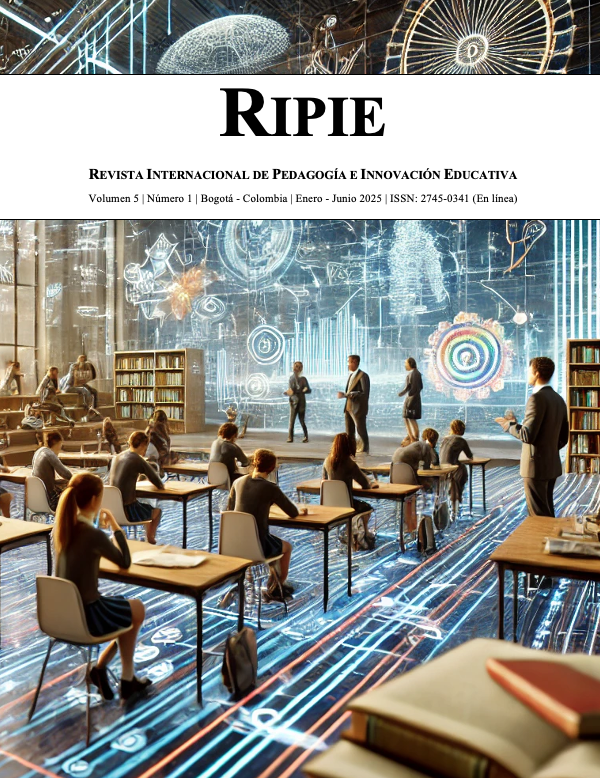Education 5.0
Synergy between emotional intelligence and artificial intelligence in university mathematics education
DOI:
https://doi.org/10.51660/ripie51225Keywords:
education, emotional intelligence, artificial intelligence, innovation, technology, adaptationAbstract
The article explores how the integration of artificial intelligence (AI) and emotional intelligence (EI) can transform university education. It focuses on analyzing the impact of AI on the personalization of learning and the automation of administrative tasks, as well as examining the role of socio-emotional skills in the comprehensive development of students. Additionally, it proposes strategies for the effective implementation of Education 5.0 in universities, promoting adaptive and emotionally enriching learning. The methodology used is based on a descriptive theoretical approach, with a literature review and case study analysis. The results highlight the importance of developing adaptive educational platforms that integrate AI modules to monitor both academic progress and students' emotional well-being, allowing timely interventions that improve academic performance and overall well-being. The creation of a research center dedicated to exploring and developing new methodologies and technologies that integrate AI and EI is proposed, collaborating with universities and technology companies to experiment with new approaches and evaluate their effectiveness in real educational settings, such as the collaboration between the University of Oxford and Google DeepMind.
Downloads
References
Bar-On, R. (1997). The Emotional Quotient Inventory (EQ-i): A test of emotional intelligence. Multi-Health Systems.
Bar-On, R. (2006). The Bar-On model of emotional-social intelligence (ESI). Psicothema, 18, 13-25.
Bisquerra, R. (2003). Emoción y bienestar. Wolters Kluwer.
Campbell, M., Hoane, A. J., & Hsu, F. H. (2002). Deep Blue. Artificial Intelligence.
Goleman, D. (1995). Emotional Intelligence: Why It Can Matter More Than IQ. Bantam Books.
Goleman, D. (1998). Working with Emotional Intelligence. Bantam Books.
Haugueland, J. (1985). Artificial Intelligence: The Very Idea. MIT Press.
Holmes, W., Bialik, M., & Fadel, C. (2019). Artificial Intelligence in Education: Promises and Implications for Teaching and Learning. Center for Curriculum Redesign.
Hoy, M. B. (2018). Alexa, Siri, Cortana, and More: An Introduction to Voice Assistants. Medical Reference Services Quarterly.
Johnson, W. L. (2018). The Role of Artificial Intelligence in Personalized Learning. Journal of Personalized Learning.
Luckin, R., Holmes, W., Griffiths, M., & Forcier, L. B. (2016). Intelligence Unleashed: An Argument for AI in Education. Pearson.
Mayer, J. D., & Salovey, P. (1997). What is emotional intelligence? In P. Salovey & D. Sluyter (Eds.), Emotional development and emotional intelligence: Educational implications (pp. 3-31). Basic Books.
Rich, E., & Knight, K. (1991). Artificial Intelligence. McGraw-Hill.
Schalkoff, R. J. (1990). Artificial Intelligence: An Engineering Approach. McGraw-Hill.
Downloads
Published
Issue
Section
License
Copyright (c) 2025 International Journal of Pedagogy and Educational Innovation

This work is licensed under a Creative Commons Attribution-NonCommercial-ShareAlike 4.0 International License.
Articles are published under the terms of a licence that permits use, distribution and reproduction in any medium, provided that the original work is properly cited. Ed&TIC retains the proprietary rights to the published works and actively promotes the reuse of these works under the terms of the aforementioned licence, which encourages the dissemination of knowledge and collaboration in the academic community.


